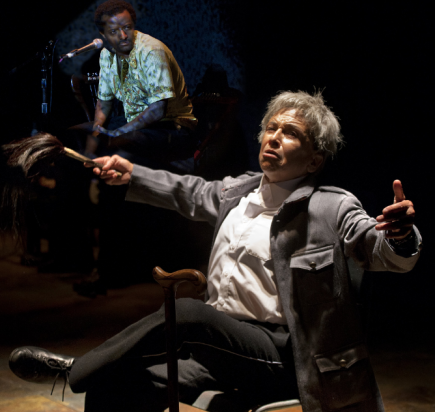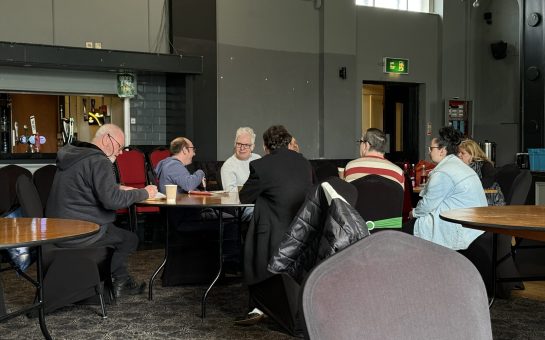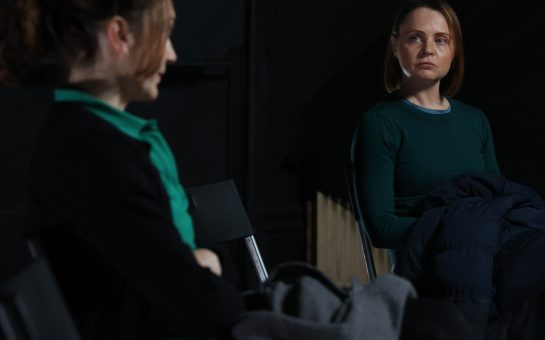The gripping tale of the rise and fall of Ethiopian emperor Haile Selassie is brought to life in this stunningly simple stage adaptation of the novel by Polish journalist Ryszard Kapuściński.
In just an hour and a half the play manages to recount Selassie’s 44 years of rule with an emotional and historic sensitivity as Kathryn Hunter takes on the role of ten different male servants.
Having already proven her ability to tackle a male role in her interpretation of King Lear, Hunter shines once again as a chameleon with a seamless ability to switch character, accent and demeanour in a matter of seconds.
This proves extremely effective in that we are given the sense that all of these people, from the pillow bearer to the valet, share a collective memory and are united in their loyalty to the emperor.
“I think the point of Kapuściński telling the story from the point of view of the servants is that sometimes the big power struggles have a huge fallout on the so-called little people who have a fullness of life themselves,” Hunter told MM.
“The task is to not make them anonymous but to give them as much detail as possible.”
Throughout the play Hunter’s monologues are punctuated by the beautiful music performed by Ethiopian Temesgen Zeleke which brings to emotion and colour to Hunter’s physically expressive performance.
“For me it’s the spirit of Ethiopia,” said Hunter.
“In the story there are moments of memory, there are moments of anxiety as they remember the first rebels who tried to dethrone the emperor and all these impulses are shaped by the music.”

PAST AND PRESENT: Hunter, with musician Temesgen Zeleke seen in the background, warns the message of Selassie’s rule applies strongly to this day and age
The play also combines moments of comedy with the harsh reality of the emperor’s unequivocal neglect of his people.
However despite being confronted with the shocking scenes from Jonathon Dimbleby’s 1973 documentary The Unknown Famine, the audience is left with the feeling that the emperor garnered the respect of many.
“There is the larger political truth that there was a huge famine to which the emperor did not attend,” said Hunter.
“However there’s also the truth that he was a great father figure for many African nations, he was a great reformer and moderniser, he had his blind spots like many other world leaders.”
Although the subject of the play is historical it still bears a chilling resemblance to the power struggles in the Middle East today thus reminding us that we have a collective responsibility to fight corruption.
As Hunter explained: “It’s not something that exists just in the past. It’s about us today. It’s about our leaders and also our responsibility for what leaders we elect which in the end results in the kind of world we live in.
“Although it’s a story that seems remote about a faraway place it’s actually about us.
“As a journalist who’s covered many revolutions the underlying question that Kapuściński is asking is ‘What is the art of governing?’”
The Emperor will be shown at HOME until Saturday October 8.
For tickets visit www.homemcr.org/the-emperor



